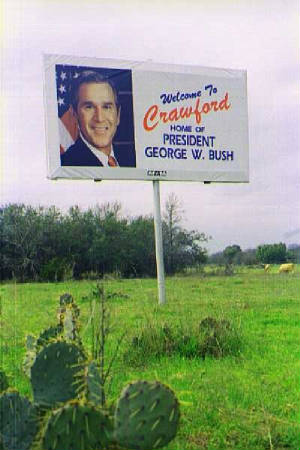
It's not "liberals" or "left-wing kooks" pointing out how lost the country is under Bush. Old time and rock-solid Republicans WHO KNOW are aghast at what George Bush has done as president while subverting the original ideals and values of the GOP. More than that they rightly fear for the country's future while believing that John Kerry represents the best chance to bring it back to its democratic roots with dignity and honor. No matter which party you support this extraordinary condemnation by John Eisenhower is a wake-up call to shake off the Rove-colored glasses. It took great bravery for Eisenhower to stand up for something greater than party loyalty to speak out about what is right for America. It's one of the most selfless acts of patriotic courage that I've witnessed in my lifetime. Eisenhower could have remained quiet about the Bush threat and lived out his last days without any rancor but instead chose a path that his father would have been proud of because he stood up as an American first, party second. --- Sam Park
Son of GOP President Supports Kerry
Wed Sep 29, 8:24 PM ET
TRAPPE, Md. - John Eisenhower, son of Republican President Eisenhower, said in a newspaper column this week that he will vote for Democratic Sen. John Kerry for president on Nov. 2.
In a rare public announcement, Eisenhower said he switched his party affiliation from Republican to independent after 50 years after losing confidence in his former party. He said Kerry has demonstrated courage, competence and a concern for tackling the "widening socio-economic gap in this country."
"There are times when we must break with the past, and I believe this is one of them," Eisenhower wrote in the opinion column published Tuesday in The Union Leader of Manchester, N.H.
The column assails President Bush and the GOP for federal budget deficits, for "unilaterally" invading Iraq and for infringing on personal liberties.
The Bush campaign had no immediate comment.
Eisenhower, 82, declined to be interviewed Wednesday. His wife, Joanne Eisenhower, said by telephone from their home on Maryland's Eastern Shore that, "This is something he felt strongly about."
"The fact is that today's 'Republican' Party is one with which I am totally unfamiliar. To me, the word 'Republican' has always been synonymous with the word 'responsibility,' which has meant limiting our governmental obligations to those we can afford in human and financial terms.
"Today's whopping budget deficit of some $440 billion does not meet that criterion," Eisenhower wrote.
Eisenhower, a former U.S. ambassador to Belgium and author, was a registered Republican for 50 years — until the Bush administration's decision to invade Iraq "as a maverick," he wrote.
"Recent developments indicate that the current Republican Party leadership has confused confident leadership with hubris and arrogance," he wrote.
Eisenhower scolded the Republican leadership for embracing a tax code that "heads us in the direction of a society of very rich and very poor."
"Senator Kerry, in whom I am willing to place my trust, has demonstrated that he is courageous, sober, competent, and concerned with fighting the dangers associated with the widening socio-economic gap in this country," he concluded.



